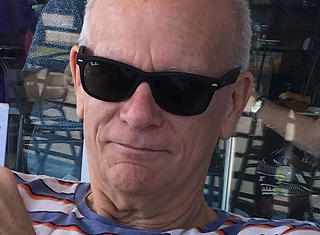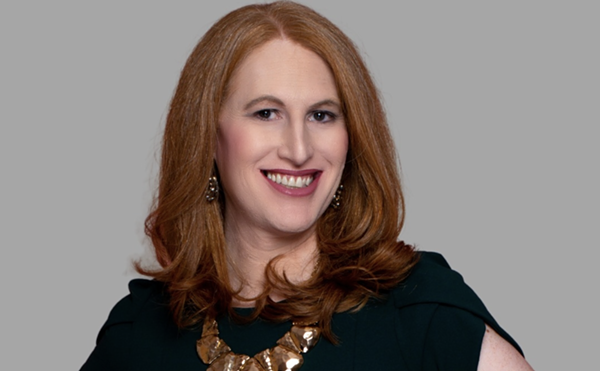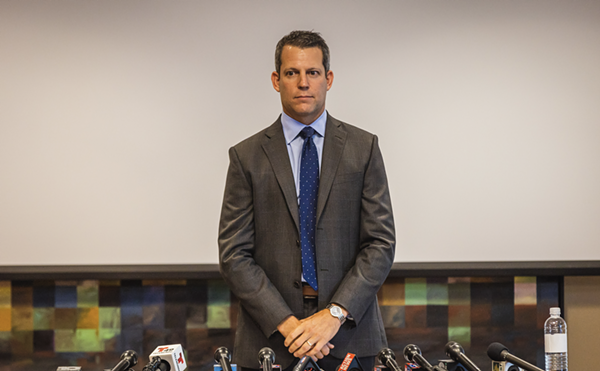Columbia TeenScreen offers the technology for free, but a health professional must be on site during testing to assess results and respond accordingly. Thus far, the program has found that about 20 percent of the youngsters tested need counseling; 10-15 percent show some "suicidal ideation."
Local mental health professionals, including representatives from the Hillsborough and Pinellas County school systems, have seen presentations on TeenScreen. They recognize its effectiveness but are concerned with what happens after kids are diagnosed.
Who will treat the new influx of students with mental disorders? Who will pay for it? Most mental health institutions are stretched thin and feeling a budget squeeze, be it from government cutbacks or a drop in donations. Schools, the most obvious venue for such a program, are reluctant to take the lead.
"We felt that we could not set up a system to provide the necessary services for students identified to need treatment," says Linda Jones, Pinellas County's supervisor for Safe and Drug Free Schools. "It's not a good idea to screen unless you can provide care."
Gwen Luney, assistant superintendent for supportive services and federal programs at Hillsborough County Schools, says TeenScreen would cost the school district roughly $200,000 a year — $200K they don't have. Although she's impressed with the screening technique, she said, "We're hesitant to commit to a new program if there's a strong possibility we'll be seeing some [money] shortfalls. Also, are we going to find a place for this [diagnosed] child to go? If so, what if the child doesn't have insurance? Who picks up the cost? Does it get passed on to the county? It can't be passed on to the school district. And the liability factor is greater now that you've identified [the at-risk student]."
Flynn maintains that creative synergy between schools and mental health institutions can save lives. She says TeenScreen pilot programs have not overstressed treatment resources in other communities. "How many are they willing to help?" she asks. "Two, three, five cases a week?"
Nancy Pape is the program manager for Children's Crisis Services at Mental Health Care, Inc., the only facility left in Hillsborough County where young people can get in-patient psychiatric treatment. Last year, her facility did 1,392 psychiatric evaluations of young people. Of these, 909 showed "specific suicidal ideation," or about two-and-a-half per day.
"I think something like TeenScreen would be especially effective in picking up early signs of emotional problems," Pape says. "So in that sense I think it would [have more impact on] outpatient programs. I'm confident that our program could handle the referrals of the most acutely suicidal or depressed."
Bonnie McLelland's father succumbed to cancer on the Easter Sunday following Tim's suicide. She says her three sisters abandoned her. "They can't forgive me for what happened to Tim," she says.
But Bonnie did stay in touch with Tim's friends. And on May 31 of last year, she formed her Yellow Ribbon chapter in Pinellas. The organization was founded nine years ago by a Colorado couple whose son committed suicide.
For a few weeks, Tim's friends stayed locked in a kind of surreal disbelief, even though they knew their friend had been troubled. Guilt made their days darker. "Everybody knew [Tim was at risk]," says Tracy Consoli. "You could see it. We pretended it wasn't there, that he was fine, that he'd be OK. We were afraid to risk our social value, to be the one who actually stood up and did something. Tim was asking for help and we didn't give any."
Meanwhile, Sebastian was sinking lower and lower. He dropped out of school: "It got to the point where I couldn't concentrate."
Sebastian says he had considered killing himself before Tim's death, but "Tim's suicide pushed the idea in front of me."
One of Yellow Ribbon's main tenets is to urge kids to inform a responsible adult if they fear someone they know is contemplating suicide. Bonnie drummed it into the kids' heads.


















